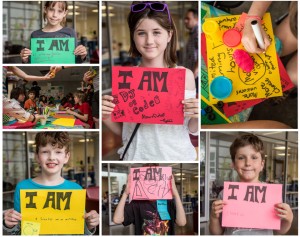Einstein put it best: We can’t solve problems by using the same kind of thinking we used when we created them. The world’s most beloved genius reminds us that it doesn’t take a genius to graduate beyond the state of being stumped. It only takes an earnestly dogged jury-rigger.
Martha White’s Time Magazine article, “The Real Reason College Grads Can’t Get Hired,” reports the widely-held managerial observation that young job applicants either haven’t been born or bred to think critically and solve problems. In the crush to populate the workforce with technical proficiency, we’ve created a generation of people who think properly, but who don’t know how to think fast.
It’s a discrepancy that’s created a youth unemployment crisis—the International Labour Organization notes that young people are three times more likely to be unemployed than adults, and almost 73 million young people worldwide are without work. The World Economic Forum concluded that a staggering 40% of the world’s unemployed are youth, and McKinsey & Company forecasts that by 2020, we will face a shortfall of up to 85 million skilled workers.
No wonder we’ve gotten into this conundrum. We’ve been busy. As technology’s expansion has shrunk the world, we’ve restructured our global economy to focus less on manufactured goods and more on the “products” of service and knowledge. We have armed upcoming workers with the organizational principles, employment patterns, and competitive advantage to cope quite precisely with this near-frantic pace of change. Except now, the resulting shortfall of problem-solvers needs problem-solvers, for whom precision is less important than savvy and instinct.
Wherefore art thou, problem-solvers?

Not surprisingly, what young people want from employers doesn’t always line up with what companies want from employees. Everyone wants dream jobs (and dream teams)—is it possible for us to grant both those wishes in one fell swoop?
First, let’s get radical—at least relatively speaking. Our collective temperature has not been conducive to truly open thought, outlook, and potential in recent days. Headmaster Richard Cairns of Brighton College offers a philosophy that’s a first step: he describes a curriculum in which all students study Mandarin, girls play cricket, and boys practice dance as an education that encouraged students to be “first-class versions of themselves rather than second-class versions of someone else.”
The same is true of the job market. As the job-for-life concept has faded, so too has the tedium of career monogamy. It’s good news that international competition has intensified. A wealth of complexity means a wealth of opportunities—if fresh-faced graduates are to dive in and succeed, they’ll need us to first help them appreciate the formative value of the periodic bunglings, misfires, and failures that accompany radical forward movement.
Say what you want about intellect, training, or experiential chops: put simply, innovators are hackers. It’s not a set of specialized skills, and not even a particular affinity for technology. A hacker’s mind germinates with soft attributes: curiosity, mischief, and a shruggy attitude to the inevitable falling-down in the doing of grand adventure. Like when we were young.
Every young person is equal-parts scientist, magician, and engineer. They pull things apart to discover something new because they know better than any academic that when we tinker, we learn. They ask questions out loud and to no one at all. They find order in mess, chaos in tidy. They practice the art of unstructured invention five times before lunch. It’s the LEGO way.
Beyond’s recent West Coast Research & Design Jam—a lab designed for the study and appreciation of our Junior Prototypers—was a mosh pit of kid-led creation. We had them digging through raw materials, prototyping ideas, testing hypotheses and brainstorming improvements. As they jammed and borrowed and jury-rigged, we all chatted about what it might all mean. The future! The past! Hopes, dreams, wishes. And as they tend to do (if adults take a moment to listen), the kids were shockingly astute.
They told us that they’re not considering their future in specific ways, at least not beyond the standard-issue enthusiasm for space travel. They told us about the general effect they seek, which was definitive: happiness. Because happiness makes peace, and peace makes more happiness. And so on.
We need more of this shocking, childlike optimism. And we need to retain it into adulthood. On top of it, let’s stack a healthy dose of something commonly referred to as grit. Persistence is the cornerstone of a hacking mindset. After all, it wasn’t inspiration that drove me to stay up past midnight pecking away at code to nail the syntax for more complex programs. It was pure doggedness. Hackers are not only unafraid of mistakes—they’re unafraid of repeated mistakes. With every iteration comes the kind of discovery that you just can’t plot in advance. The broader our individual knowledge base of what works and what doesn’t, the broader our future product or system.
We need to play with the status quo, pushing past the educational baseline of literacy, numeracy, and IT. At Beyond, our mission is to do just that—to bring grown-ups, institutions, and ideas together with the purpose of protecting and extending the innate curiosity of youth. This is how we’ll populate our workforce with the hackers and innovators we need to solve our biggest problems.
We need more than competency. We need a whole new agenda in which parents, schools, communities make sure that the entertainments, learning structures, and facilities that swirl around our youth are wide open, with plenty of space (and a cheering section) for new ideas. Einstein himself would approve.
 Watch Beyond CEO Lital Marom speak at PechaKucha Vancouver about how hacking can foster young people’s creative confidence, and help them move beyond limiting narratives for a bright, re-engineered future. Follow along by subscribing to Beyond’s Facebook page. If you’re an educator or developer interested in creating new learning models and experiences we would love to talk to you. Get in touch at reach@wemovebeyond.com.
Watch Beyond CEO Lital Marom speak at PechaKucha Vancouver about how hacking can foster young people’s creative confidence, and help them move beyond limiting narratives for a bright, re-engineered future. Follow along by subscribing to Beyond’s Facebook page. If you’re an educator or developer interested in creating new learning models and experiences we would love to talk to you. Get in touch at reach@wemovebeyond.com.



